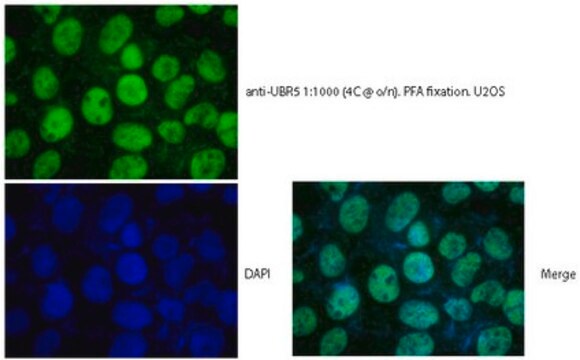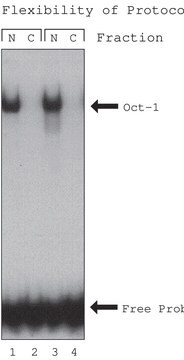OGS3162
PSF-OXB20-NH2-PHOA - PHOA SECRETION PLASMID
plasmid vector for molecular cloning
Synonyme(s) :
cloning vector, expression vector, molecular cloning vector, plasmid, plasmid vector, snapfast vector, vector
About This Item
Produits recommandés
Produit recombinant
expressed in E. coli
Forme
buffered aqueous solution
Poids mol.
size 3911 bp
Sélection de bactéries
kanamycin
Origine de la réplication
pUC (500 copies)
Clivage des peptides
no cleavage
Localisation du marqueur peptidique
N-terminal
Promoteur
Promoter name: OXB20
Promoter activity: constitutive
Promoter type: bacterial
Gène reporter
none
Signal de sécrétion
PhoA
Conditions d'expédition
ambient
Température de stockage
−20°C
Description générale
About the Peptide Tag:This plasmid contains an PhoA secretory signal peptide (SP) to allow proteins to be exported from the cytosol. During translocation from the cytosol the signal peptide is removed from the protein by endogenous proteases. .
Promoter Expression Level: This plasmid contains a constitutive bacterial promoter that does not require induction. It is the strongest bacterial promoter we sell and this can cause solubility and expression problems with some proteins. We also offer a range of other bacterial promoters that are compatible with this plasmid and are available on request.
Séquence
Remarque sur l'analyse
Produit(s) apparenté(s)
Code de la classe de stockage
12 - Non Combustible Liquids
Point d'éclair (°F)
Not applicable
Point d'éclair (°C)
Not applicable
Faites votre choix parmi les versions les plus récentes :
Certificats d'analyse (COA)
Désolés, nous n'avons pas de COA pour ce produit disponible en ligne pour le moment.
Si vous avez besoin d'assistance, veuillez contacter Service Clients
Déjà en possession de ce produit ?
Retrouvez la documentation relative aux produits que vous avez récemment achetés dans la Bibliothèque de documents.
Notre équipe de scientifiques dispose d'une expérience dans tous les secteurs de la recherche, notamment en sciences de la vie, science des matériaux, synthèse chimique, chromatographie, analyse et dans de nombreux autres domaines..
Contacter notre Service technique







